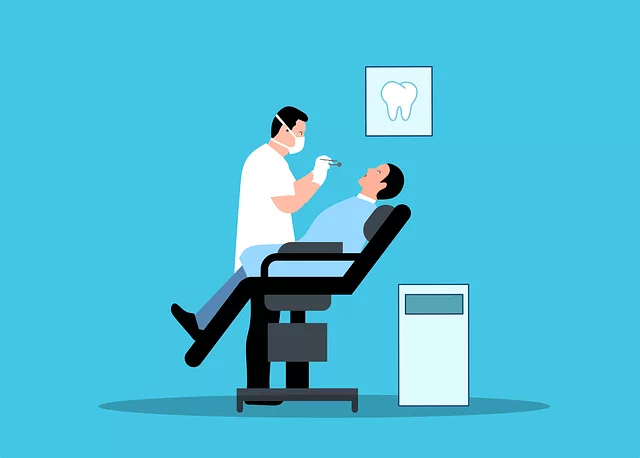Medical Scrib Services in Toledo, Ohio, are pivotal in enhancing healthcare documentation efficiency and accuracy by transcribing patient encounters into electronic health records while ensuring strict compliance with HIPAA regulations to protect sensitive data. These scribes receive specialized training to navigate the complex regulatory environment that includes both federal and state guidelines, as overseen by the Ohio Department of Health and the Centers for Medicare & Medicaid Services (CMS). They also comply with the Health Information Technology for Economic and Clinical Health (HITECH) Act, which expands HIPAA’s privacy protections. With a focus on upholding patient privacy and data security, these services play a critical role in maintaining the integrity of medical records, thereby supporting clinicians in providing superior patient care. The continuous training and adaptation to state-specific updates are essential for these scribes to stay compliant and reliable within Ohio’s healthcare sector. Medical Scribing agencies, particularly those in Toledo, are thus crucial in ensuring that all practices adhere to the highest standards of compliance and patient care.
Medical scribing has emerged as a critical support role within healthcare systems, particularly with the widespread adoption of Electronic Medical Records (EMRs). As this field expands, it encounters a complex array of regulatory challenges that necessitate careful navigation. This article delves into the intricacies of compliance and privacy, guided by the Health Insurance Portability and Accountability Act (HIPAA), and explores the impact of EMR adoption on medical scribing regulations. It also sheds light on state-specific considerations, focusing on Medical Scrib Services Toledo Ohio, and Ohio’s broader approach to regulating these services. Finally, it discusses strategies for maintaining quality and consistency in medical scribing amidst the evolving regulatory landscape. Understanding these challenges is paramount for professionals in the field of medical scribing to ensure they adhere to best practices and legal requirements.
- Navigating Compliance and Privacy: The Role of HIPAA in Medical Scribing
- State-Specific Regulations Governing Medical Scrib Services in Toledo, Ohio
- Ensuring Quality and Consistency in Medical Scribing Amidst Regulatory Hurdles
Navigating Compliance and Privacy: The Role of HIPAA in Medical Scribing

In the realm of healthcare, medical scribes play a pivotal role in facilitating efficient documentation within clinical environments. As medical scribing services expand, notably in regions like Toledo, Ohio, the integration of these professionals into healthcare teams necessitates a keen understanding of compliance and privacy regulations. Central to this is the Health Insurance Portability and Accountability Act (HIPAA), which sets the standard for protecting sensitive patient data. Medical scribes must be well-versed in HIPAA guidelines to ensure that they handle protected health information (PHI) appropriately, maintaining its confidentiality and integrity throughout the documentation process. The role of HIPAA in medical scribing extends beyond mere adherence; it involves proactive measures to safeguard patient privacy and prevent data breaches, which could have severe repercussions for both the healthcare provider and the patient. In Toledo, Ohio, as with other locations, medical scribing services are expected to implement robust compliance frameworks that align with HIPAA standards, thereby protecting patient confidentiality while enabling the flow of critical information among healthcare providers. The stakes are high, as any breach could not only compromise patient trust but also result in significant legal and financial consequences for the medical facility and scribing service provider. Therefore, ongoing training and adherence to HIPAA regulations are essential components of a successful medical scribing operation.

State-Specific Regulations Governing Medical Scrib Services in Toledo, Ohio

In Toledo, Ohio, the regulatory landscape for medical scribing services is shaped by a combination of state and federal guidelines, with specific state-specific regulations that scribes and healthcare providers must navigate. Medical Scrib Services Toledo Ohio operate within the purview of the Ohio Department of Health and the Centers for Medicare & Medicaid Services (CMS). These entities set forth the standards for medical records management, including the use of scribes to support the documentation process. Scribes in Toledo must adhere to state-specific privacy laws such as the Health Information Technology for Economic and Clinical Health (HITECH) Act, which extends the protections of the HIPAA Privacy and Security Rules. Furthermore, Ohio’s specific licensing requirements and scope of practice regulations for healthcare providers can impact how scribes function within the state. Medical Scribing in Toledo, Ohio, requires a thorough understanding of these regulations to ensure compliance with patient privacy, data accuracy, and secure handling of sensitive information. Healthcare organizations offering Medical Scrib Services in Toledo must stay abreast of local amendments and updates to state regulations, as they can vary significantly from neighboring states, affecting the operational procedures and legal responsibilities of medical scribes. It is imperative for these services to maintain up-to-date knowledge of both state-specific and federal healthcare regulations to deliver effective and compliant support to medical providers in Toledo.
Ensuring Quality and Consistency in Medical Scribing Amidst Regulatory Hurdles

Medical scribes play a critical role in healthcare systems by capturing patient information and translating it into structured medical records. As the demand for efficient documentation solutions grows, ensuring quality and consistency in medical scribing amidst regulatory hurdles becomes increasingly complex. In Toledo, Ohio, as elsewhere, medical scrib services must navigate a labyrinth of federal and state regulations that govern patient privacy, data security, and record accuracy. These regulations, such as the Health Insurance Portability and Accountability Act (HIPAA), set stringent standards for protecting sensitive health information, making compliance non-negotiable for any medical scribing service. To maintain quality, medical scribes undergo rigorous training to understand the nuances of clinical documentation, which is essential for accurate record-keeping. Consistency in this process is achieved through the implementation of standardized protocols and continuous monitoring. Medical scrib services in Toledo, Ohio, must also stay abreast of local regulations, ensuring that they adhere to state-specific laws and adapt to any new legal requirements that may arise. This commitment to regulatory compliance not only safeguards patient privacy but also contributes to the integrity of the healthcare data ecosystem. As such, medical scribing agencies in Toledo, Ohio, are instrumental in providing high-quality, consistent documentation services that support clinicians and improve patient care outcomes.


